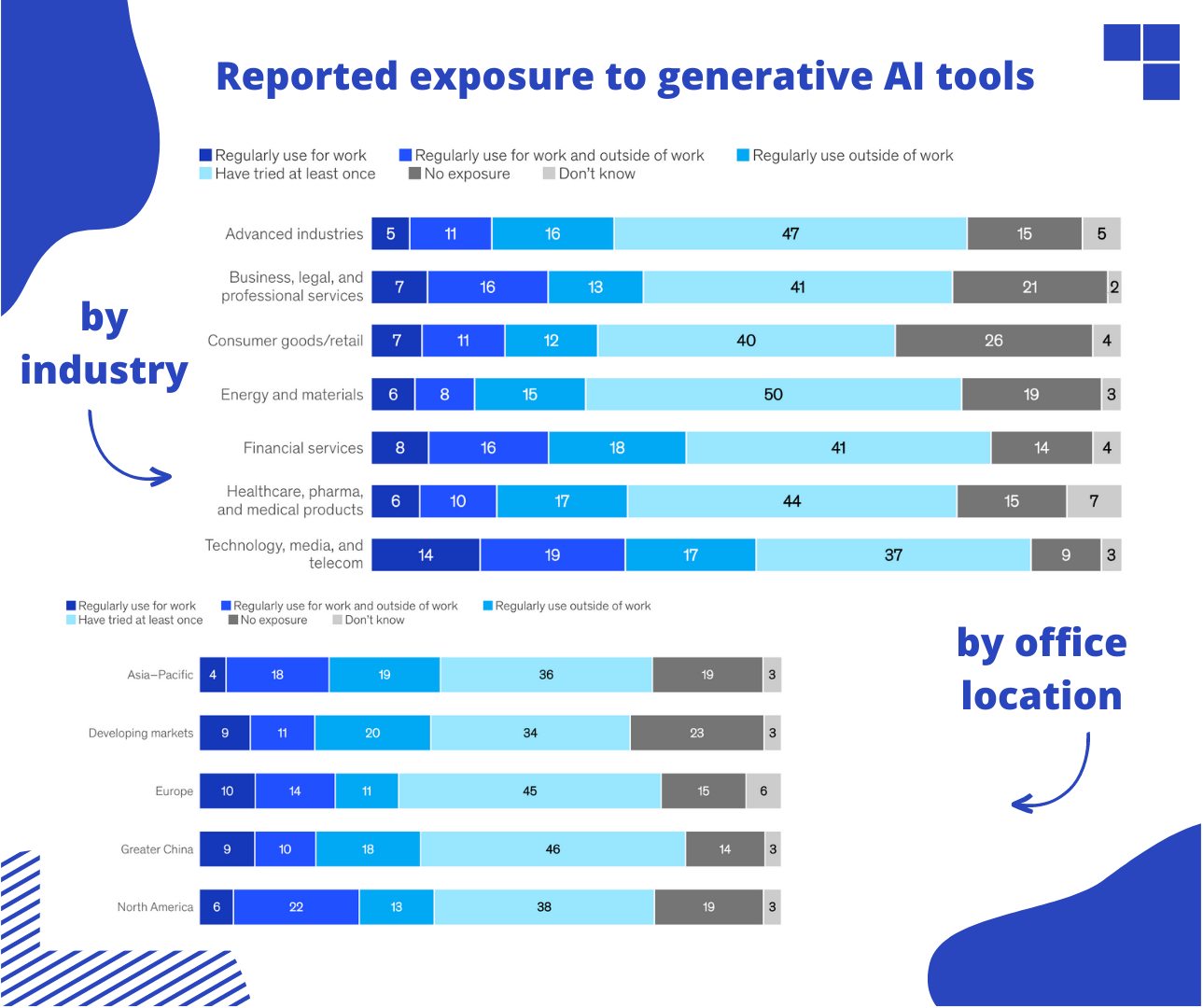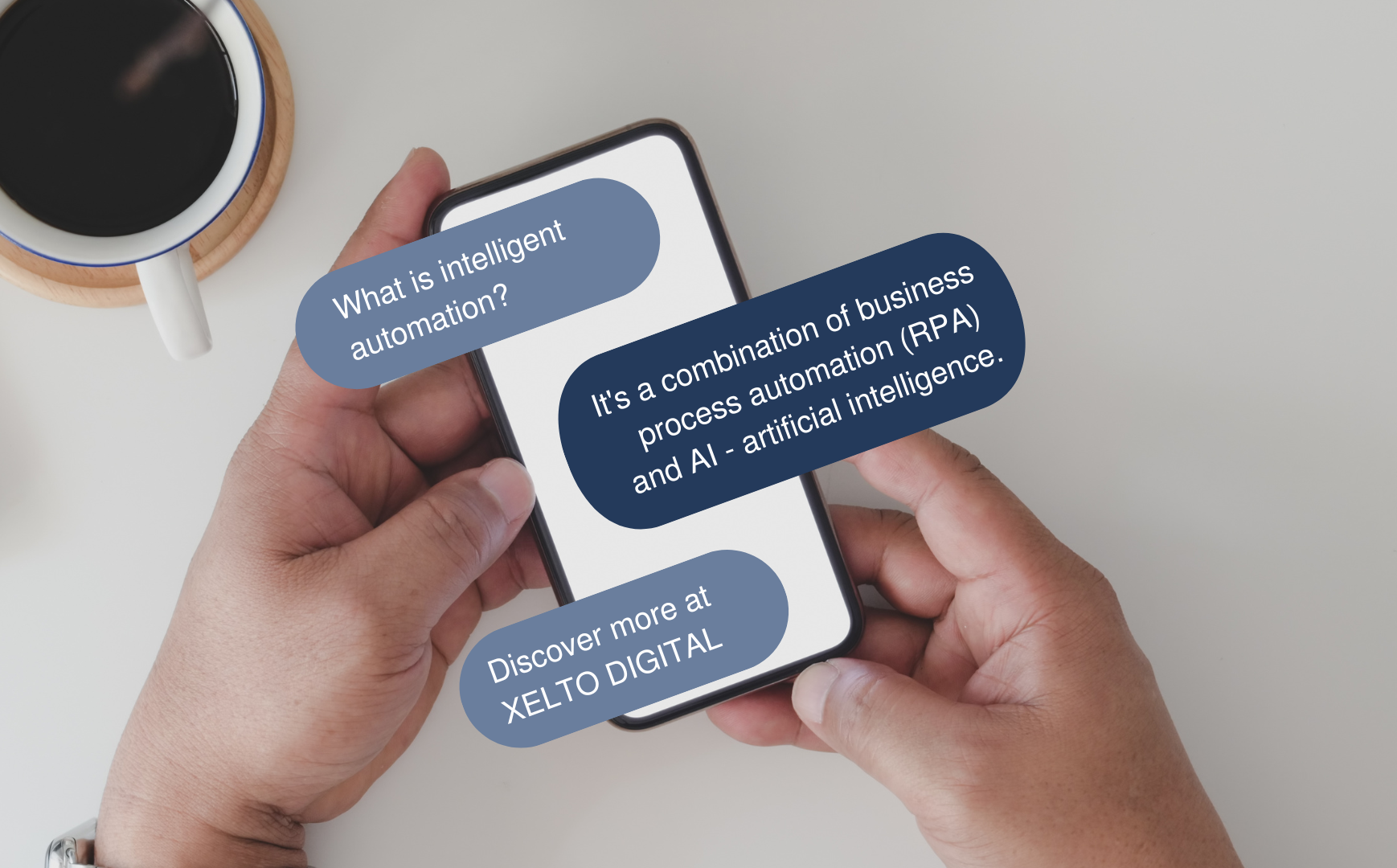
The state of AI in 2023
This is just the 𝐒𝐓𝐀𝐑𝐓, and the use of 𝐆𝐞𝐧𝐞𝐫𝐚𝐭𝐢𝐯𝐞 𝐀𝐈 is currently hugely common! 🤯💪 The results of the survey, which was conducted in mid-April 2023, show that the use of generative AI tools is already widespread, and respondents expect the new capabilities to transform their industries for the better 📈. Generative AI has attracted the interest of the entire business population: people from different regions, industries and at different levels are using AI at work and beyond. Statistically, more than 79% of those surveyed say they have had contact with generative AI, and almost 21% say they regularly use it in their work!🧑💼🧑💻. The solution, as we can see, is most prevalent in the technology and financial services sectors (in terms of industry), reflecting its rapid integration into various businesses. The place where generative AI is growing the most is North America. However, Asia-Pacific and other markets are not far behind 🖥️🗺️. Generative AI will become an integral part of various industries and organizational strategies – that much is certain – which is why the McKinsey study highlights the rapid development of generative AI in 2023 🌐. However, despite such rapid growth, the overall use of artificial intelligence tools has remained steady, leaving companies with ample scope to capitalize on disruptive technologies. As the potential of generative AI continues to develop, deploy and explore, the future of innovation looks promising and is full of opportunities ✅.

